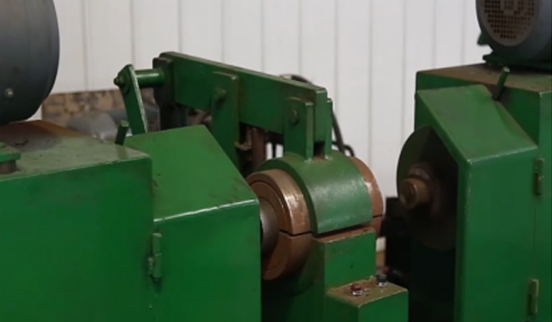 Afrikaans
Afrikaans  Albanian
Albanian  Amharic
Amharic  Arabic
Arabic  Armenian
Armenian  Azerbaijani
Azerbaijani  Basque
Basque  Belarusian
Belarusian  Bengali
Bengali  Bosnian
Bosnian  Bulgarian
Bulgarian  Catalan
Catalan  Cebuano
Cebuano  Corsican
Corsican  Croatian
Croatian  Czech
Czech  Danish
Danish  Dutch
Dutch  English
English  Esperanto
Esperanto  Estonian
Estonian  Finnish
Finnish  French
French  Frisian
Frisian  Galician
Galician  Georgian
Georgian  German
German  Greek
Greek  Gujarati
Gujarati  Haitian Creole
Haitian Creole  hausa
hausa  hawaiian
hawaiian  Hebrew
Hebrew  Hindi
Hindi  Miao
Miao  Hungarian
Hungarian  Icelandic
Icelandic  igbo
igbo  Indonesian
Indonesian  irish
irish  Italian
Italian  Japanese
Japanese  Javanese
Javanese  Kannada
Kannada  kazakh
kazakh  Khmer
Khmer  Rwandese
Rwandese  Korean
Korean  Kurdish
Kurdish  Kyrgyz
Kyrgyz  Lao
Lao  Latin
Latin  Latvian
Latvian  Lithuanian
Lithuanian  Luxembourgish
Luxembourgish  Macedonian
Macedonian  Malgashi
Malgashi  Malay
Malay  Malayalam
Malayalam  Maltese
Maltese  Maori
Maori  Marathi
Marathi  Mongolian
Mongolian  Myanmar
Myanmar  Nepali
Nepali  Norwegian
Norwegian  Norwegian
Norwegian  Occitan
Occitan  Pashto
Pashto  Persian
Persian  Polish
Polish  Portuguese
Portuguese  Punjabi
Punjabi  Romanian
Romanian  Russian
Russian  Samoan
Samoan  Scottish Gaelic
Scottish Gaelic  Serbian
Serbian  Sesotho
Sesotho  Shona
Shona  Sindhi
Sindhi  Sinhala
Sinhala  Slovak
Slovak  Slovenian
Slovenian  Somali
Somali  Spanish
Spanish  Sundanese
Sundanese  Swahili
Swahili  Swedish
Swedish  Tagalog
Tagalog  Tajik
Tajik  Tamil
Tamil  Tatar
Tatar  Telugu
Telugu  Thai
Thai  Turkish
Turkish  Turkmen
Turkmen  Ukrainian
Ukrainian  Urdu
Urdu  Uighur
Uighur  Uzbek
Uzbek  Vietnamese
Vietnamese  Welsh
Welsh  Bantu
Bantu  Yiddish
Yiddish  Yoruba
Yoruba  Zulu
Zulu urethane coated rollers
Understanding Urethane Coated Rollers Advantages and Applications
Urethane coated rollers are an indispensable component in various industrial applications, known for their durability, versatility, and superior performance. As industries continuously seek to optimize their operations, the demand for high-quality rollers has surged, leading to the widespread adoption of urethane-coated solutions. This article delves into the advantages and applications of urethane coated rollers, highlighting why they are considered a preferred choice across sectors.
What are Urethane Coated Rollers?
Urethane coated rollers are cylindrical components that are covered with a layer of polyurethane, a polymer known for its excellent mechanical properties. The coating process involves applying a thick layer of polyurethane over a metal core, creating a roller that can withstand various operational environments. Urethane coatings come in different hardness levels, allowing users to select the ideal roller for their specific application needs.
Advantages of Urethane Coated Rollers
1. Durability One of the most significant benefits of urethane coated rollers is their durability. Urethane is highly resistant to wear and tear, making these rollers ideal for heavy-duty applications. They can endure rough handling and abrasive materials without degradation, ensuring a long service life.
2. Resistance to Chemicals Urethane has excellent resistance to various chemicals, including oils, solvents, and cleaning agents. This characteristic makes urethane coated rollers suitable for use in environments where exposure to these substances is common, such as in food processing and chemical manufacturing industries.
3. Shock Absorption The elasticity of polyurethane allows these rollers to absorb shock and vibrations effectively. This quality not only protects the integrity of the rollers but also contributes to smoother operational processes, reducing stress on machinery and enhancing overall performance.
4. Customizable Hardness Urethane coatings can be formulated to achieve different hardness levels, ranging from very soft to very hard. This customization allows manufacturers and users to select rollers that suit their specific applications, whether they require maximum grip for moving delicate materials or a harder surface for enhanced load-bearing capabilities.
5. Noise Reduction Urethane coated rollers can significantly reduce noise levels in machinery due to their sound-damping characteristics. This feature is particularly beneficial in industries like packaging and printing, where noise pollution can be a concern.
urethane coated rollers

6. Cost-Effectiveness Although urethane coated rollers may have a higher upfront cost compared to some alternatives, their longevity and reduced maintenance needs make them cost-effective in the long run. Fewer replacements and repairs lead to lower operational costs over time.
Applications of Urethane Coated Rollers
Urethane coated rollers are utilized in a variety of industries, showcasing their versatility
1. Printing Industry In the printing sector, urethane coated rollers are commonly used in presses and for handling paper. Their ability to grip materials effectively without causing damage is invaluable.
2. Conveyor Systems In manufacturing and logistics, these rollers are often found in conveyor systems where they transport goods. The shock absorption and durability of urethane coatings make them suitable for handling heavy loads and minimizing product damage.
3. Textile Industry Urethane coated rollers play a crucial role in the textile industry, assisting in the handling and processing of fabrics. Their customizable hardness allows for specific applications, including gentle handling of delicate materials.
4. Food Processing In food manufacturing, hygiene is paramount. Urethane’s chemical resistance and ease of cleaning make these rollers ideal for applications where food safety is a priority.
5. Woodworking and Metalworking Urethane coated rollers are also utilized in woodworking and metalworking machinery, where they support the movement of heavy materials while minimizing wear on both the roller and the product.
Conclusion
Urethane coated rollers offer a blend of durability, versatility, and performance that is hard to match. Their wide range of applications makes them vital in multiple industries, from printing and textiles to food processing and logistics. As businesses continue to prioritize efficiency and reliability, the adoption of urethane coated rollers is expected to grow, showcasing the importance of material science in enhancing industrial productivity. By choosing the right urethane coated roller for their specific needs, manufacturers can significantly improve their operational outcomes while ensuring longevity and reliability in their processes.
-
Revolutionizing Conveyor Reliability with Advanced Rubber Lagging PulleysNewsJul.22,2025
-
Powering Precision and Durability with Expert Manufacturers of Conveyor ComponentsNewsJul.22,2025
-
Optimizing Conveyor Systems with Advanced Conveyor AccessoriesNewsJul.22,2025
-
Maximize Conveyor Efficiency with Quality Conveyor Idler PulleysNewsJul.22,2025
-
Future-Proof Your Conveyor System with High-Performance Polyurethane RollerNewsJul.22,2025
-
Driving Efficiency Forward with Quality Idlers and RollersNewsJul.22,2025





























